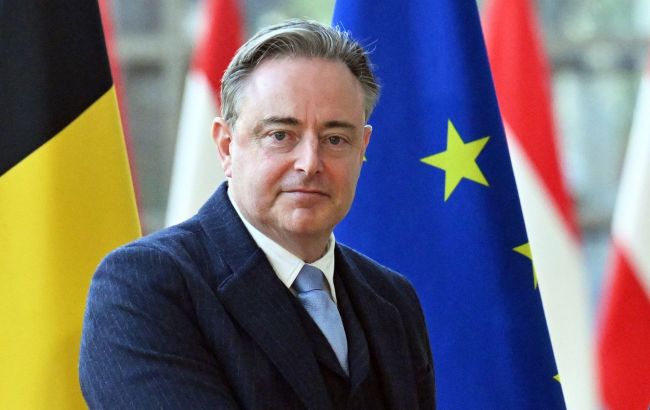EU scrambles for plan B after Belgium blocks Ukraine reparations loan – Politico
 Photo: Bart de Wever (GettyImages)
Photo: Bart de Wever (GettyImages)
The European Union may be forced to raise tens of billions of euros in joint debt if Belgium does not agree to unblock the mechanism of the so-called reparation loan to Ukraine, Politico reports.
According to the agency's sources, without new financial assistance, Ukraine could face significant difficulties as early as the end of the first quarter of 2026.
Belgium received a legal proposal from the European Commission on the use of Russian assets only on the morning of October 23, immediately before the EU summit. Most of these funds are held in the Belgian depository Euroclear, so the country's government is cautious due to possible financial risks.
As Politico notes, in such circumstances, Prime Minister Bart De Wever did not rush to make a decision.
After Belgium did not lift its reservation, several EU leaders began discussing the possibility of issuing joint debt to finance Ukraine. However, the agency's sources emphasize that this issue does not yet have broad support, given the high levels of debt in most EU countries.
Most member states consider the use of frozen Russian assets to be the best option. According to two diplomats, the idea of joint debt was raised more as a scare tactic to push Belgium to make a decision.
"What’s the point of discussing alternative solutions? This [the reparation loan] is the only thing that we have. And we should be honest about it," says one European diplomat.
In addition to plan B with joint debt, the EU is considering a third scenario—ending financial support for Ukraine—but only Hungary supports it.
The final decision on the financing mechanism is to be made by EU leaders by December 18.
Background
Ukraine's international partners are discussing ways to cover the state budget deficit for next year. One of them involves creating a so-called “reparation loan” — a mechanism that would allow frozen Russian assets to be used for Ukraine's benefit.
However, the European Union has previously postponed a decision on the use of frozen Russian assets to support Ukraine, with a final discussion scheduled for December.
The delay does not pose any critical risks for Ukraine, as its financial needs for 2025 are already covered.
Despite the postponement, EU leaders have confirmed that they will continue to support Ukraine for as long as necessary, providing it with the resources it needs to defend itself against Russian aggression.

